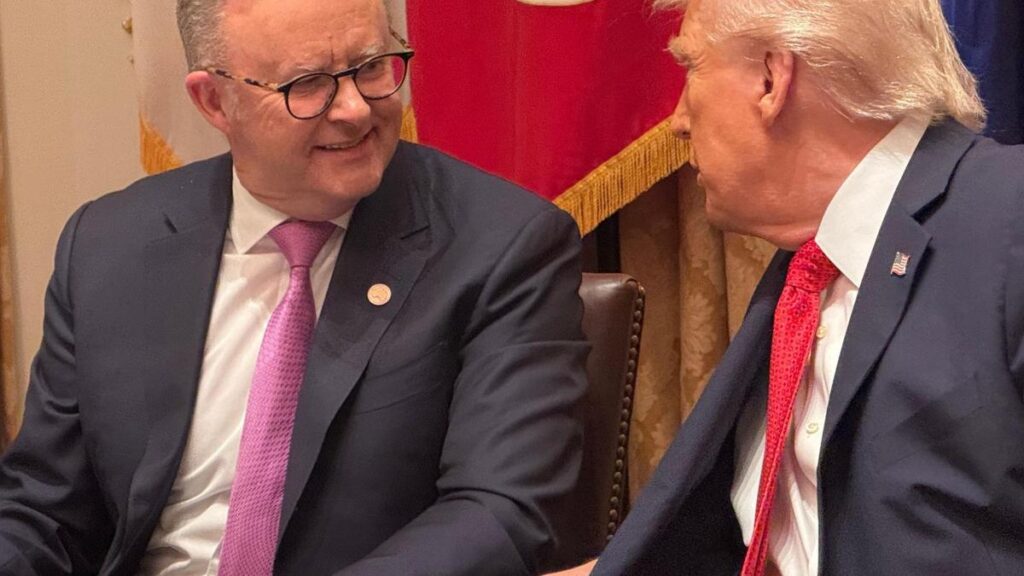
Prime Minister Anthony Albanese refrained from disclosing details regarding potential adjustments to the AUKUS agreement after a meeting with United States President Donald Trump. The discussions, held at the White House on March 11, 2024, revolved around a plan valued at $368 billion to supply Australia with a fleet of nuclear-powered submarines. Although President Trump indicated he had specific changes in mind, Albanese did not elaborate on them during a press conference following the meeting.
During the press conference, Albanese was questioned about his understanding of Trump’s proposed adjustments and whether these could influence the timeline for the delivery of three American-made Virginia-class submarines, which are scheduled to arrive in the early 2030s. He responded by affirming that discussions indicated the delivery timeline remains “on track,” with the possibility of an earlier arrival. “Well, they said yesterday, not only was it said that the timeline was on track, but that potentially it could be brought forward,” Albanese stated, sidestepping inquiries about the specific changes.
When pressed further, Albanese maintained that his government would not “pre-empt” any announcements. He acknowledged having knowledge about the changes but asserted, “We don’t make announcements about AUKUS and structures at a press conference like this.”
Albanese also downplayed apprehensions regarding a Pentagon review, which is reportedly nearing completion amid challenges in submarine production in the United States. He emphasized that the AUKUS agreement originated from a concept that required substantial development. “We inherited what was essentially a media release and a concept and an idea. We built on that,” he explained. He noted the ongoing reviews being conducted by the UK and the United States and described adjustments as typical in lengthy, costly projects.
“It’s not simple; it has stages to it,” he added. “Inevitably, of course, as you go, you’ll constantly have an assessment to make sure you’re getting everything right. You don’t say in something that’s going to go to the 2040s, this is exactly how things are going to occur, because you want to make sure you get it right.”
Security Concerns and Regional Stability
While addressing the media, Albanese was hesitant to endorse Trump’s characterization of AUKUS as a “deterrent” against China. The Chinese military has been demonstrating its capability, including recent naval operations around Australia and tensions with the Philippines over territorial disputes. “I think the AUKUS agreement is about our national security and is about a more secure and peaceful Indo-Pacific and region,” Albanese remarked. He emphasized that the agreement aims to enhance Australia’s national security rather than being solely focused on countering any specific nation.
Trump, during the joint press conference, expressed his belief in the necessity of AUKUS for deterring China but suggested that he did not anticipate a need for such measures. “I think it is, but I don’t think we’re going to need it,” he stated confidently, asserting that the United States remains “the strongest military power in the world by far.” Trump highlighted the superiority of U.S. military equipment, declaring, “We have the best equipment, we have the best of everything, and nobody’s going to mess with that.”
As discussions about AUKUS continue, the geopolitical landscape in the Indo-Pacific remains complex, particularly with Trump’s upcoming meeting with Chinese President Xi Jinping at the Asia-Pacific Economic Cooperation summit. The outcomes of these engagements may further shape the strategic dynamics of the region.






